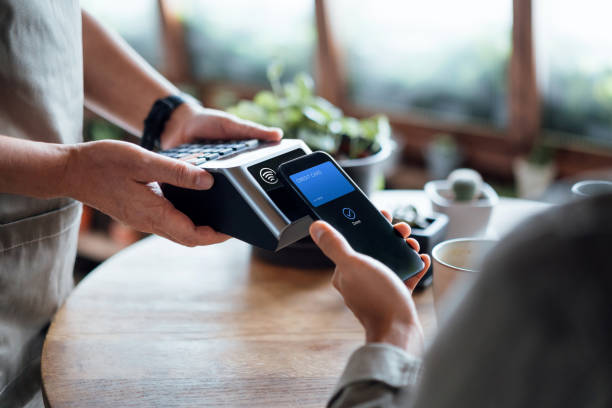Mobile banking has revolutionized the relationship of people and firms in general with financial institutions, offering many benefits and conveniences unavailable before. With the advancement of technology, mobile banking is an important emerging trend in the financial sector; its development reflects so much about the reliance of modern society on technology. This paper presents the pervasiveness of mobile banking, provides the associated advantages and challenges, and describes the ways through which the financial scenario is being changed.
Rise of Mobile Banking
Mobile banking is a concept that emerged since the early 2000s when banks started basic services like balance inquiries, transfer facilities, and bill payments via SMS. The actual face of mobile banking, however, was after the creation of smartphones. Banking applications can help banks probably deliver a much smoother and easier experience to the customers. After people became more dependent on the internet and mobile phones for daily activities, mobile banking application development was also applied.
Fast forward to today and mobile banking has become a staple in the global financial ecosystem. Just recently, statistics have shown that nearly 80% of Americans now use mobile banking apps regularly. Here’s a huge shift in consumer behavior. What was once an indulgence has now turned into a necessity for consumers on the go, enabling the user to have easy access to financial accounts.

Benefits of Mobile Banking
Convenience and Accessibility
The most important advantage that mobile banking offers is the pure convenience it provides. Today, one does not have to plan time in order to visit a branch of a bank or queue up at an ATM in order to access his accounts. Mobile banking can be accessed from almost anywhere and at any given time, given the availability of the internet. Whether it is to check a balance on the way to work, transferring money between accounts during lunch, or even paying bills in the dead of night, mobile banking removes all the physical contact with the bank for a completely unprecedented flexibility.
Mobile banking has helped bring about real-time transactions, and there is no way anyone could have better imagined them. Whether sending some money to a friend as instant payment or completing an online purchase, users enjoy the immediacy of transactions free from the tedium associated with traditional banking methods. Such immediacy works well in a fast society such as the one in which we live today.
Beyond this, the direct transfer function of mobile banking has changed the way business is conducted. Businesspeople can now pay suppliers, salaries, and taxes promptly; hence, they do not incur late fees or disrupt businesses.
Advanced Security Measures
Perhaps, there has always been a concern over the level of security on the internet, but mobile banking has done great strides over the last few years in terms of security purposes. Most people have secured mobile banking apps with two-factor authentication. Fingerprint recognition and some more advanced versions with facial recognition secure transactions. It ensures that the ones making the transactions are the authorized account holders. The technologies applied by banks in making transactions include encryption, a means of protecting transactions and other data from cyber attacks.
Mobile banking offers more control over one’s finances. For example, in case of loss or theft of the mobile phone, most apps can lock off access to a mobile account as well. Therefore, this will reassure a customer to enable him/her to conduct financial operations on a mobile device safely.
Financial Management Tools
Contemporary mobile banking applications now boast of tools that monitor personal finances. Most applications currently can classify how to spend, set a certain amount of saving targets and budget, and follow up on certain consumption patterns. Such abilities empower users to get more in check with their finances while using the application to make knowledgeable saving and investment decisions on areas to save and spend elsewhere. For every citizen saving money, mobile banking shall bring an easy way toward getting there.
Most banks have also embraced mobile apps as a means of providing investment services, whereby one can create a diversified portfolio with just some taps on the screen. This democratization of access to investment opportunities has made investments more accessible than ever before.
Mobile Banking Impact on Businesses
Streamlined Payments
Mobile banking has revolutionized the payment processing aspect of business operations. It has been used by small startups to large corporations to modernize transaction processing. For example, mobile POS allows a business to process payments directly from mobile devices, thereby doing away with a traditional cash register and card reader. In this respect, flexibility benefits entrepreneurs and small businesses by reducing overhead costs while increasing customer satisfaction due to the availability of an extra payment option.
Enhanced Cash Flow Management
It is evident that any business requires cash flow management, but mobile banking makes things easier. The owner, with mobile banking, can monitor in real time the cash going in and out of the business, hence more accurate forecasting and management of expenses for the business. Mobile banking can provide immediate access to cash; therefore, businesses are afforded to pay invoices and supplies without disruptions in their production.
Issues and Problems
Even with its several benefits, mobile banking is not all smooth riding. Users and banks must overcome all those adversities. The most significant remaining problem is security because the hacker is also constantly updating its mode of access to this mobile application. Even when the bank does its utmost to secure the mobile applications, the same is only supplemented and up to the user not to provide security while trying to access it in the public Wi-Fi or otherwise providing the details.
The major challenge is the digital divide. Mobile banking can reach out to a majority of people, but the truth remains that not everyone owns a smartphone or has stable internet connections. This may bar most people from having financial access, especially in rural areas or developing areas.

Future of Mobile Banking
The future of mobile banking does look bright. Advanced developments in AI, blockchain, and machine learning may make mobile banking even more secure and effective and limit less than what is possible. AI might revolutionize customer service by mobile banking applications by giving customized recommendations and insights. Blockchain may provide a more transparent way of dealing with all financial transactions.
As the technology is shifting daily, mobile banking is about to become even more imperative in the financial sector soon. It surely has many implications in society, and with more consumers embracing mobile technology, influence will increase as well.





